More Great Titles from Batsford
Founded in 1843, Batsford is an imprint with an illustrious heritage that has built a tradition of excellence over the last 168 years. Batsford has developed an enviable reputation in the areas of fashion and design, embroidery and textiles, chess, heritage, horticulture and architecture.
tap on the titles below to read more
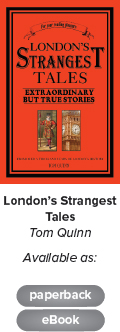
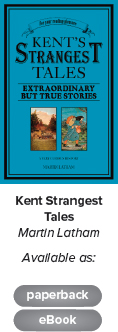
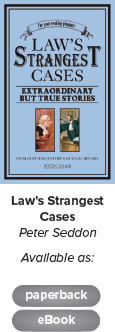
 @Batsford_Books
@Batsford_Books
 www.batsford.com
www.batsford.com
Other books in this series:
The Ashes Strangest Moments
Boxings Strangest Fights
Bridges Strangest Games
Cinemas Strangest Moments
Crickets Strangest Matches
Fishings Strangest Days
Footballs Strangest Matches
Gamblings Strangest Moments
Golfs Strangest Rounds
Horse-racings Strangest Races
The Laws Strangest Cases
Medicines Strangest Cases
Motor-racings Strangest Races
The Olympics Strangest Moments
Pokers Strangest Hands
Politics Strangest Characters
Railways Strangest Journeys
Rugbys Strangest Matches
Sailings Strangest Moments
Sciences Strangest Inventions
Shootings Strangest Days
Televisions Strangest Moments
Tenniss Strangest Matches
Theatres Strangest Acts
ROYALTYS STRANGEST
CHARACTERS
Geoff Tibballs
To the memory of Chester
This edition published in the United Kingdom
Portico Books
10 Southcombe Street
London
W14 0RA
An imprint of Anova Books Company Ltd.
First published in the United Kingdom in 2005 by Robson Books
Copyright Geoff Tibballs 2005
The moral right of the author has been asserted
All rights reserved. No part of this publication may be reproduced, stored in a retrieval system, or transmitted in any form or by any means, electronic, mechanical, photocopying, recording or otherwise, without the prior permission in writing of the publishers.
First eBook publication 2014
ISBN 9781849941808
Also available in paperback
ISBN 9781861058270
This book can be ordered direct from the publisher
at www.anovabooks.com , or try your bookshop.
INTRODUCTION
Just as the monarchy has been hereditary in many countries, so insanity has been hereditary in many monarchs. Conditions such as syphilis, porphyria and schizophrenia not to mention megalomania, paranoia and barbarity have been handed down through the generations of the worlds royal houses along with the crown, to create a succession of mentally and physically retarded rulers. In some cases notably among the Habsburgs, who reigned over vast areas of Europe for eight centuries inbreeding exacerbated the situation, so that cousins married each other and uncles married nieces. The biggest problem facing guests at a Habsburg wedding was deciding on which side of the church to sit.
From the moment the Bible described the ancient Babylonian ruler Nebuchadnezzar II imagining that he was a goat, history has been rich in strange rulers. The Roman Emperor Caligula wanted to appoint his horse to the consulate; Charles VI of France was convinced that he was made of glass; and Queen Juana of Spain travelled everywhere with her late husbands coffin. Some were insanely obsessive: the Russian Tsar Peter the Great had a fixation with dwarfs, while at the opposite end of the scale Frederick William I of Prussia recruited the tallest men in Europe to form his own freakish private army. Others like Ivan the Terrible, Christian VII of Denmark and Murad IV of Turkey were insanely cruel. There have been tragic figures, rulers who have abused their position with bizarre excesses and extravagances, and finally the plain eccentric, a category that includes almost the entire royal house of Bavaria.
With such a wealth of larger-than-life characters from which to choose, a number failed to make the cut for this book, principally those whose little foibles were not wholly representative of their overall character. For example, the founder of modern Ethiopia, Emperor Menelik II of Abyssinia, was an outstanding leader who decided that the cure for any disease was to get his teeth into a good book literally. Accordingly, whenever he felt unwell, he would eat a few pages of the Bible. Stricken with illness in 1913, he devoured the entire Book of Kings and dropped dead. After staying at Londons Ritz Hotel, King Amanullah of Afghanistan became so fascinated by English traditions that he tried to make the wearing of bowler hats compulsory amongst men in his native country. Philip, Prince of Calabria, the eldest son of Carlos III of Spain, had a fixation with gloves, occasionally wearing sixteen pairs at a time, while Ferdinand II of Sicily was so vain that he refused to allow his portrait on his countrys postage stamps to be marred by an unsightly franking mark. To deter unwanted flies, King Pepi II of Egypt always kept a supply of naked slaves handy, their bodies smeared with honey. George II of England performed a curious nightly bedroom ritual. He used to stand outside his mistresss bedroom at precisely one minute to nine and on the stroke of nine oclock he would enter the room, pull down his breeches and have sex, often without bothering to remove his hat. He also sold tickets to his subjects so that they could watch him and his family eating Sunday dinner. More sinisterly, Queen Ranavalona of Madagascar executed any of her subjects who appeared in her dreams, and Queen Henrietta, wife of Leopold II of the Belgians, kept a pet llama that she taught to spit in the face of anyone who stroked it. For anyone who feels strongly that the aforementioned kinky kings and quirky queens should have been included, I humbly apologise.
Time has judged some monarchs more kindly than others. George III, once mocked as a barking mad tree-hugger, is now viewed sympathetically, his bouts of manic behaviour being attributed to the hereditary blood disease porphyria, which attacks the bodys nervous system. A medical expert has even found mitigating circumstances to excuse the behaviour of that most notorious of tyrants, Vlad the Impaler. Without wishing to compare him to either of the aforementioned pair, will Prince Charles be remembered with similar compassion in centuries to come? Will historians portray him as a harmless eccentric who liked to talk to his plants or as a callous adulterer who treated his young wife appallingly? In the meantime he still has a few years to claim his place among royaltys strangest characters.
As ever, I am indebted to the wisdom and enthusiasm of Jeremy Robson and to my editors at Robson Books, Clive Hebard and Rob Dimery. I would also like to thank the staff at the libraries of Nottingham, Westminster, Sheffield, Birmingham, Leicester, Hammersmith and Lincoln.
Geoff Tibballs, 2004
THE QUEST FOR IMMORTALITY
SHI HUANGDI, EMPEROR OF CHINA (259210 BC )
The first emperor of China, Shi Huangdi has gone down in history as a mighty ruler who united the country, standardised written characters and currency, and oversaw the construction of road and canal networks as well as the linking of various border walls into one Great Wall. These practical achievements were all the more remarkable given that he suffered from advanced paranoia and devoted most of his energies to staying one step ahead of the Grim Reaper. To say that he had a fixation with his own mortality would be an understatement, although after at least three attempts on his life his fears were perhaps understandable. He didnt just have a date with death, they were practically engaged.

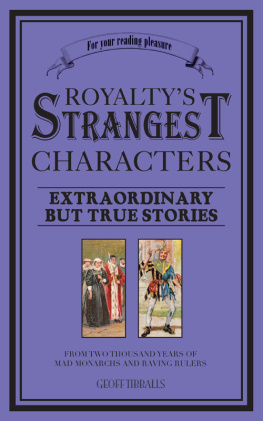



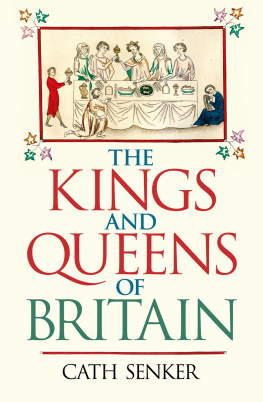


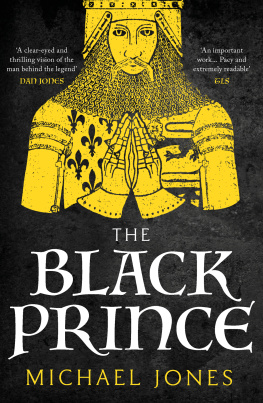
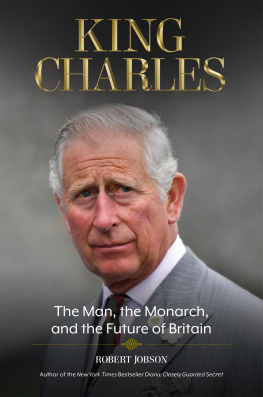
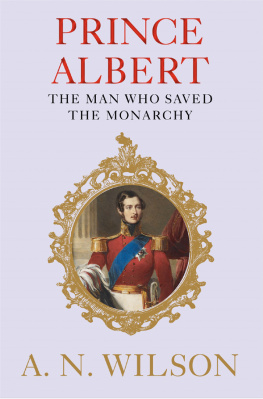
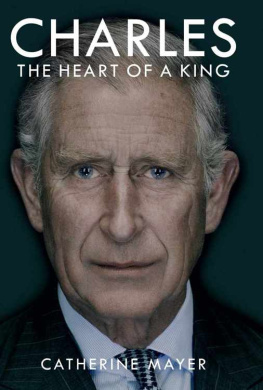
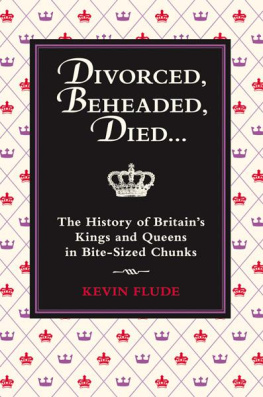

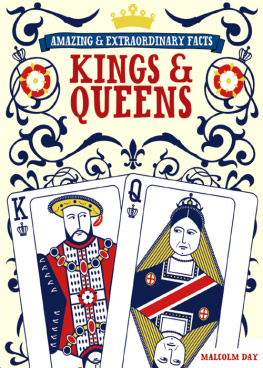




 @Batsford_Books
@Batsford_Books www.batsford.com
www.batsford.com